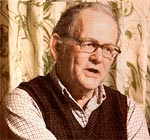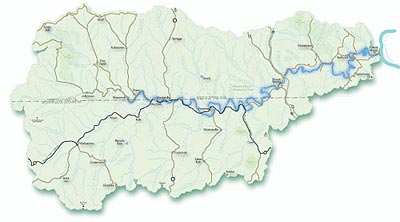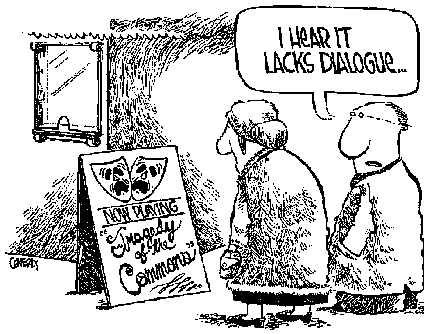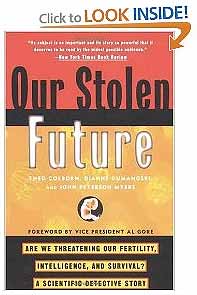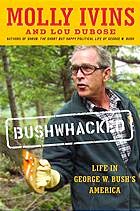Contains the keyword background
See: Criticism: Tragedy of the commons | Wikipedia
More significantly, criticism has been fueled by the "application" of Hardin's ideas to current policy issues. In particular, some authorities have read Hardin's work as specifically advocating the privatization of commonly owned resources.
Consequently, resources that have traditionally been managed communally by local organizations have been enclosed or privatized. Ostensibly, this serves to "protect" such resources, but it ignores the pre-existing management, often appropriating resources and alienating indigenous (and frequently poor) populations. In effect, private or state use may result in worse outcomes than the previous management of commons.
Ostrom, E., J. Burger, C. B Field, R. B Norgaard, and D. Policansky. 1999. Revisiting the commons: local lessons, global challenges. Science 284, no. 5412: 278.
Victor L. Ponce. Hardin's "Tragedy of the Commons" Revisited or We Are All In the Same Boat.
Another example of a typical commons is groundwater. Nobody really owns the groundwater; it is technically up for grabs. However, individual pumping of too much groundwater can result in the depletion of the resource, to say nothing of other related effects or losses, such as land subsidence and salt-water intrusion...Eventually, depletion by a few means depletion for all.
See: USGS. Land Subsidence
Victor Ponce is a Professor of Civil, Construction and Environmental Engineering at San Diego State University.
See: Marcellus-Shale.us. December 2, 2009. "Dunkard Creek Fish Kill."
The Tragedy of the Commons
Adding together the component partial utilities, the rational herdsman concludes that the only sensible course for him to pursue is to add another animal to his herd. And another... But this is the conclusion reached by each and every rational herdsman sharing a commons.
Therein is the tragedy. Each man is locked into a system that compels him to increase his herd without limit -- in a world that is limited. Ruin is the destination toward which all men rush, each pursuing his own best interest in a society that believes in the freedom of the commons. Freedom in a commons brings ruin to all.
I would like to focus your attention not on the subject of the article (national security in a nuclear world) but on the kind of conclusion they reached, namely that there is no technical solution to the problem.
An implicit and almost universal assumption of discussions published in professional and semipopular scientific journals is that the problem under discussion has a technical solution. A technical solution may be defined as one that requires a change only in the techniques of the natural sciences, demanding little or nothing in the way of change in human values or ideas of morality...
...It is our considered professional judgment that this dilemma has no technical solution.
See: J. B. Wiesner and H. F. York. "National Security and the Nuclear-Test Ban." Sci. Amer. 211 (No. 4), 27 (1964).
See: The Tragedy of the Commons. Food and Agriculture Organization of the United Nations (FAO) in:
Jean-Marie Baland and Jean-Phillipe Plateau. (1996). "Halting degradation of natural resources". Food and Agriculture Organization of the United Nations. Rome, Italy.
Is there a Role for Rural Communities?
The present work is concerned with the topical issue of natural resource management. It does not deal, however, with broad-spectrum environmental concerns such as protection of wilderness areas (for example, the south pole), air or water pollution, etc., but focuses on local ecosystems. What distinguishes local-level resources from larger ecosystems is that:
(1) they are susceptible of appropriation by relatively small units (including individuals) and
(2) they can lead to rivalry in consumption in so far as yields of these resources are clearly perceived as subtractable. This book thus addresses the question as to how these local or village-level natural resources (as contrasted with global commons) can be most efficiently and equitably managed. In other words, can we find guidelines or sound theoretical principles for an optimal long-term exploitation of local resources (forests, irrigation water, pastures, lakes and rivers, sea areas, etc.)?
Disturbing evidence highlighting rapid processes of resource depletion, particularly so in developing countries, has stimulated a lot of theoretical and empirical works during the last decades. Moreover, relevant theoretical tools (such as game theory) have been developed independently of environmental concerns which have potential applications to this field.
A broad exposé of how chemicals disrupt the endocrine systems of living organisms.
See: Chapter 12, p.210 - "Defending Ourselves" offering advice on how we can avoid the disruptions caused by these chemicals.
See: TEDX | The Endocrine Disruption Exchange | Chemicals in Natural Gas Operations
TEDX: Chemicals in Natural Gas Operations | What You Need to Know About Natural Gas Production (Video)
TEDX: The Fossil Fuel Connection (PDF)
Natural Gas Operations from a Public Health Perspective (PDF)
by Theo Colborn, Carol Kwiatkowski, Kim Schultz, Mary Bachran. In Press, International Journal of Human and Ecological Risk Assessment, Sept 2010
Powder River region of northern Wyoming.
See: SkyTruth: Upper Green River Valley - A View From Above
Every day millions of gallons of clean ground water in the American West are being contaminated, all in the rush to drill for gas.
BILL WEST: It took thousands of years to recharge these aquifers.
They're pumping it out and in maybe ten years it will be gone...
Molly Ivins has written about how the EPA was virtually dismantled as the Bush-Cheney administration handed over the role of oil and gas regulation to the oil and gas industry. While Governor of Texas, Bush allowed Texas industry to voluntarily comply with Federal Clean Air Regulations. Of the hundreds of Texas companies that might have volunteered, according to Ivins, only three did.
Bushwhacked by Molly ivins offers a critique of the presidency of George W. Bush, describing how the same flawed policies he used to govern Texas have affected health and safety standards, the economy, and the environment.
Paul Krugman. Strictly Business. Bushwhacked: Life in George W. Bush’s America Book Review. The New York Review of Books. November 20, 2003.
Chapter 9 of Bushwhacked, by Molly Ivins and Lou Dubose, entitled “Dick, Dubya, and Wyoming Methane,” tells you all you need to know about the Bush Interior Department.
We learn, in particular, that J. Steven Griles, the deputy secretary—and probably the real power in the department—has spent his career shuttling back and forth between being a government official and lobbying for the extractive industries.
And he has never worried much about ethical niceties—little things like recusing himself from decisions that affect his former clients. Moreover, Griles isn’t likely to be disciplined, even when he brazenly supports industry interests over the judgments of government experts.
After all, just about every other senior official at Interior, including Secretary Gale Norton, has a similar résumé. So it’s a very good bet that the new rules on mining-waste disposal don’t reflect a careful economic analysis of the pros and cons.
See: Ed Swartz: The Grass Isn't Growing
See: Stripping the West, a NOW Converstion with Bill Moyers.
See C-Span Book TV Oct. 2, 2004. Bushwacked: Life in George W. Bush's America. Read Chapter: "Dick, Dubya, and Wyoming Methane." (152)
See: U.S. Environmental Protection Agency (EPA): Hydraulic Fracturing Study (2010-2012)
1976 video clip of M King Hubbert speaking about world oil depletion and explaining the concept of peak oil.
See article on the Energy Policy Act (2005).
Using the latest in satellite imagery, aerial photography, and Google Earth technology, this ten minute SkyTruth video explores the environmental impacts of gas and oil drilling in the Upper Green River Valley, an ecologically sensitve area of western Wyoming.
See the view of the Upper Green Valley in Wyoming from the air and the effect of hundreds of gas drilling well pads. According to SkyTruth, 10,000 well pads have been proposed.
Digital landscape of the pristine Upper Delaware Watershed - before and after gas drilling.
A slow quiet simulated time lapse on what can happen to the scenic Delaware watershed as gas drilling proceeds in Pennsylvania.
This video shows a Grandfather changing the water filter on his well water in Prenter, WV. Coal Waste has been injected into abandoned underground mines near his house. See sludgesafety.org for more info on coal slurry.
Hydrofracking involves storing gas underground and disposing of fracking sludge in abandoned mines, both a potential threat to groundwater.
See Aurora Lights article on Coal Mining's effect on clean water in West Virginia.

Irena Salina's award-winning documentary investigation into what experts label the most important political and environmental issue of the 21st Century - The World Water Crisis.
Salina builds a case against the growing privatization of the world's dwindling fresh water supply with an unflinching focus on politics, pollution, human rights, and the emergence of a domineering world water cartel.
Interviews with scientists and activists intelligently reveal the rapidly building crisis, at both the global and human scale, and the film introduces many of the governmental and corporate culprits behind the water grab, while begging the question "Can anyone really own water?"
Beyond identifying the problem, Flow also gives viewers a look at the people and institutions providing practical solutions to the water crisis and those developing new technologies, which are fast becoming blueprints for a successful global and economic turnaround.
See: Jeannette Catsoulis. Sept. 12, 2008. The New York Times. "The War Between Public Health and Private Interests".
See: Cory Doctorow . Apr 7, 2008. BoingBoing.net. "For Love of Water: infuriating and incredible documentary about world's water-crisis".
See: World-Renowned Scientist Dr. Theo Colborn on the Health Effects of Water Contamination from Fracking
See: Clean Water Action
See: WATER: Rulings Restrict Clean Water Act, Foiling E.P.A.
and Supreme Court Restricts Clean Water Act
See: WATER | That Tap Water Is Legal but May Be Unhealthy
See: WATER | FRONTLINE: Poisoned Waters
See: Drinking Water: Understanding the Science and Policy behind a Critical Resource
See: Connie Watson, CBC Radio | Feb. 4, 2003. "Sell the rain: How the privatization of water caused riots in Cochabamba, Bolivia".
See: SERC (State Environmental Resource Center). 2004. "The Meaning of Privatization."
Implications of Privatization of Water Utilities
[Provides] examples where privatized water utilities have posed risks of rate hikes, negative economic impacts, inadequate customer service, and harm to natural resources...






